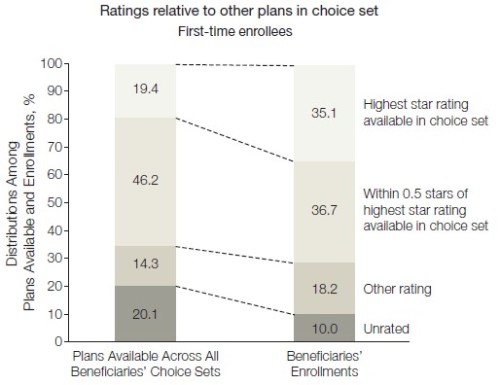A new paper on the subject is out, by Rachel Reid et al. I’m not going to describe or comment much on it right now because (a) the paper is ungated, (b) the results are not terribly surprising, and (c) I’ve covered a lot about consumers’ response to health plan quality previously.
Suffice it to say, there is a statistically significant and positive correlation between Medicare Advantage plan quality (star) ratings and enrollment. Not unrelated, there’s money on the table.



